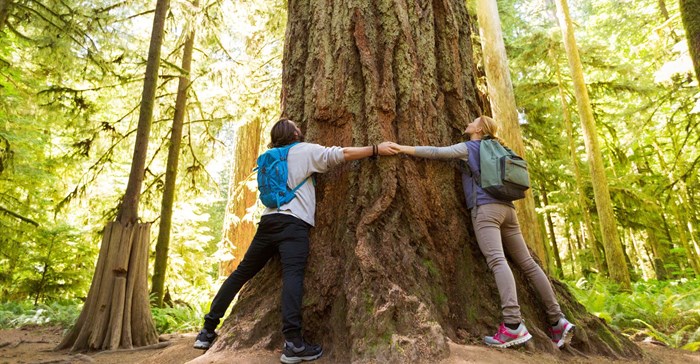
Subscribe & Follow
The world needs conscious travellers

Perhaps never before has there been a more apt time to celebrate conscious living. Conscious living can be defined in many different ways. Broadly speaking, conscious living encourages thought with action. It's taking stock of how you live your life, thinking before acting, making measured decisions and actions and being mindful of our impact on ourselves, our communities and the environment.
In 2019, and even earlier in 2020, the buzzwords of travel were 'over-tourism', being 'environmentally conscious', 'travelling responsibly' and ‘sustainable travel and tourism’. Fast forward to July 2020 and destinations, tour operators, SMMEs, hotels, travel agents, suppliers and others in travel and tourism are wondering when next they're going to be able to welcome any travellers at all.
Various levels of lockdown around the world have given the planet a chance to heal. But given the livelihoods at stake and the importance the travel and tourism sectors play in sustainability and development, we know the world can't stay at this level of hibernation.
However, what we have now is a chance. A chance to be more conscious. An opportunity for us all to seek out sustainable travel and tourism. We need to do it, and we have to.
The World Health Organization defines sustainable tourism as having three pillars – each critical – that need to be balanced with each other. They are:
• Environment: Optimal use of environmental resources that constitute a crucial element in tourism development, maintaining essential ecological processes and helping conserve natural heritage and biodiversity.
• Socio: Respect the socio-cultural authenticity of host communities, conserve their built and living cultural heritage and traditional values, and contribute to inter-cultural understanding and tolerance.
• Economy: Ensure viable, long-term economic operations, providing socio-economic benefits to all stakeholders that are fairly distributed, including stable employment and income-earning opportunities and social services to host communities, and contributing to poverty alleviation.
We need to travel. To support and sustain our economy and the millions of lives affected, not to mention the growth and development and cultural enrichment that only travel can give.
But let's always ensure that our travels add meaningful value to the community and planet.
If like me you want to be a more conscious traveller, here are some easy things you can do to preserve our world, and our health and safety, for the next generation of conscious travellers:
Raise your voice to save lives and livelihoods
The travel and tourism industry has been in hibernation since the country closed its borders on 26 March 2020. It was necessary to flatten the curve, and we applaud the Government for their decisive action. But now we need to balance lives with livelihoods. Tourism in South Africa supports 1.5m jobs and contributes 8.6% to the GDP, according to Tourism Business Council of South Africa (TBCSA) stats.
The travel and tourism industry has to open sooner rather than later, under strict health and safety measures that have been put forward by the industry, to stimulate the economy and save jobs.
The TBCSA has been lobbying for an opening of international inbound travel by September 2020. Without the opening in time to save the summer high season, which accounts for 60% of South Africa's international tourism annual revenue, the situation is dire. Plans have been presented to Government detailing comprehensive health protocols (incredible measures that de-risk the industry to an extent that very few other sectors – currently allowed to operate – have done) to mitigate the spread of Covid-19.
The industry has actively called for the opening of interprovincial travel. "Without 90% of the market, of which approximately 60% travels across provincial borders, there will be no demand and businesses will not be able to trade, even at break-even levels," reported Tshifhiwa Tshivhengwa, CEO of TBCSA. Without the opening of interprovincial travel, establishments will remain shut, and jobs will be permanently lost.
Support conscious travel companies
Being a conscious traveller starts with choosing brands that strive to maintain a high level of social responsibility.
For example, at Flight Centre, we have four core pillars to build brighter futures, focused on:
• Empowered giving through the Flight Centre Foundation. Two projects include offering bursaries to children from disadvantaged backgrounds from Grade 8 to tertiary and distributing solar lights to help children study at night, amongst others.
• Responsible travel
• Our people - egalitarianism and unity
• Environmental sustainability and practices
Choose eco-friendly accommodation, sustainable travel activities and destinations where you can contribute to conserving the environment. Wherever possible, choose to support small and local operators but do so wisely using reputable travel experts for your peace of mind.
Be mindful of your actions
You're environmentally conscious at home, but that doesn't always extend to adopting responsible behaviour when one is travelling for business or going on holiday. You recycle at home, but do you recycle when you're on holiday? You're sensitive to different cultures in your office, but do you spend time reading up on the culture of the locals in your holiday destination?
Now more than ever, we are mindful of the impact we have on others, our communities and our environments.
Recycle, reduce, reuse and be eco-friendly.
Support local and choose small
While you're travelling, avoid buying mass-produced souvenirs, and shop local. Choose handmade arts and crafts made from sustainable and recycled materials. Feast on the local cuisine. Take the time to immerse yourself in the local customs and traditions.
Not only will you be supporting local communities directly, but you'll be departing with meaningful souvenirs and gifts for friends and families back home.
There are ways to do this and maintain your health and safety, travelling with peace of mind. Speak to a travel expert who can advise how you can do this while keeping yourself safe in this new world of travel in which we find ourselves.
Plan and book now to travel later
Support your travel agent, tour guide or neighbourhood accommodation establishment by bringing in some income for them, no matter how small. Plan and book your trip now so that you can travel later.
South Africans are incredibly resilient, and it is heartening to see that so many can't wait to get travelling within their provinces and exploring the country as soon as they are able.
A recent survey conducted by the Flight Centre Travel Group showed that South Africans are ready to travel again. In fact, 86% of survey respondents said they would consider travelling to a perceived safe destination in 2020/2021.
The survey data showed that 43% would be comfortable travelling internationally, with 44% voting for travelling within South Africa. Also, 6% said they would like to go to the Indian Ocean islands, traditionally a bestseller in the South African market.
Ideal local travel destinations or experiences included beach holidays, bush breaks, the Garden Route, mountain adventures and exploring a city. We expect to see bold, exploration, adventure and bush break safari-style travel increase in popularity, as well as destinations that have shorter flight times.
Now more than ever, the world needs conscious travellers. This July, let's take stock on how we can all be more mindful and support ourselves, our people and our planet.
Related
Satsa, Fair Trade Tourism partner to boost responsible tourism in SA 30 Jan 2025 Entries open for WTM Africa Responsible Tourism Awards 20 Jan 2025 Hotel Verde secures net zero waste certification 12 Nov 2024 How to wander responsibly: Sustainable tourism practices and legal compliance in South Africa Lize-Mari Doubell and Candice Meyer 23 Aug 2024 NamibRand Nature Reserve awarded Africa’s first Wilderness Quiet Park status 19 Aug 2024 The Cape Town conundrum: Navigating the digital nomad wave Enver Duminy 19 Jun 2024 South Africa is ideally placed to reap the many rewards of conscious travel – here’s how Nick Dickson 5 Jun 2024 Exploring SanParks’ 30-year eco-tourism and commercialisation journey 22 May 2024








